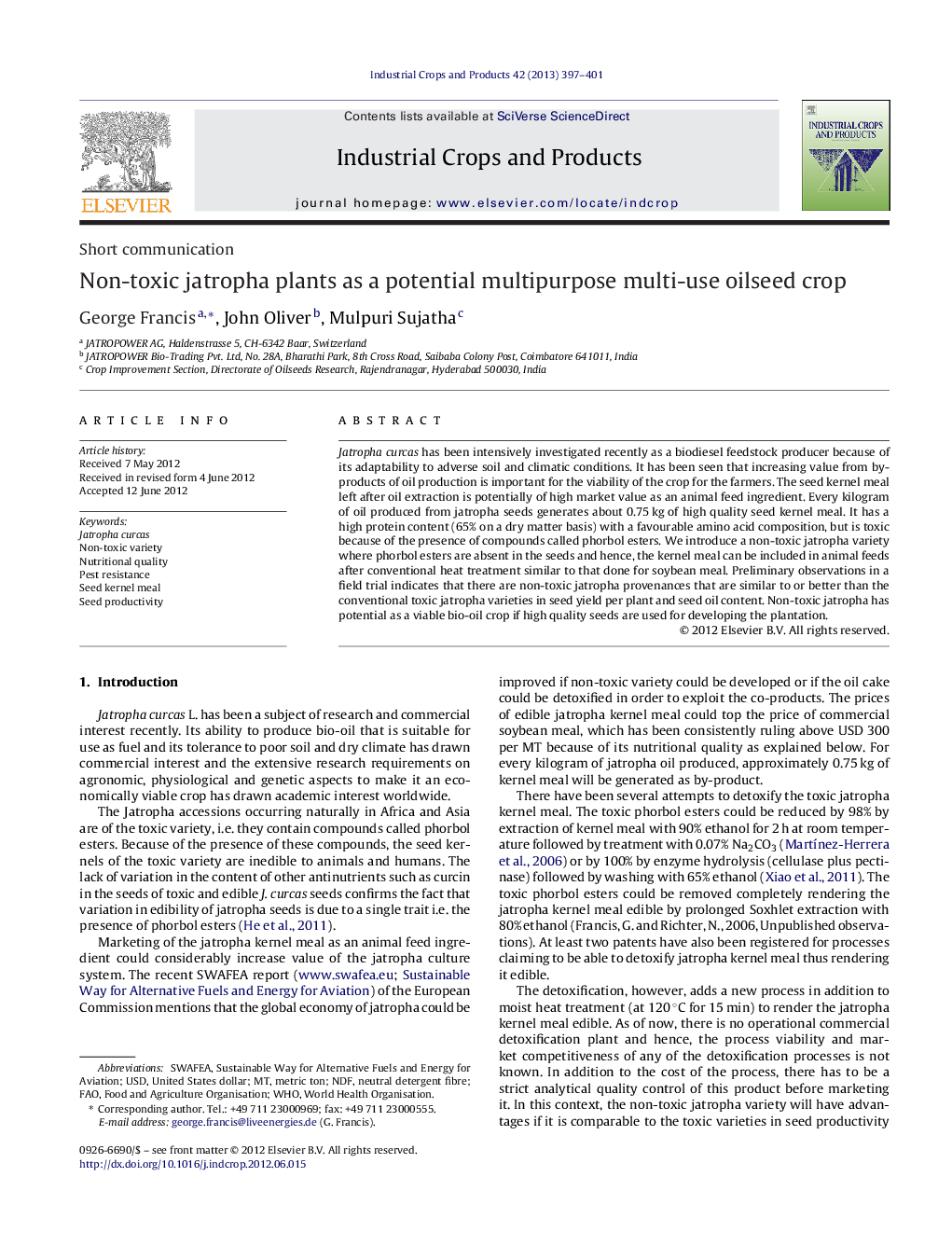| Article ID | Journal | Published Year | Pages | File Type |
|---|---|---|---|---|
| 4513760 | Industrial Crops and Products | 2013 | 5 Pages |
Jatropha curcas has been intensively investigated recently as a biodiesel feedstock producer because of its adaptability to adverse soil and climatic conditions. It has been seen that increasing value from by-products of oil production is important for the viability of the crop for the farmers. The seed kernel meal left after oil extraction is potentially of high market value as an animal feed ingredient. Every kilogram of oil produced from jatropha seeds generates about 0.75 kg of high quality seed kernel meal. It has a high protein content (65% on a dry matter basis) with a favourable amino acid composition, but is toxic because of the presence of compounds called phorbol esters. We introduce a non-toxic jatropha variety where phorbol esters are absent in the seeds and hence, the kernel meal can be included in animal feeds after conventional heat treatment similar to that done for soybean meal. Preliminary observations in a field trial indicates that there are non-toxic jatropha provenances that are similar to or better than the conventional toxic jatropha varieties in seed yield per plant and seed oil content. Non-toxic jatropha has potential as a viable bio-oil crop if high quality seeds are used for developing the plantation.
► Non-toxic jatropha plants present potential producing oil as fuel feedstock and seed meal as animal feed. ► The seed kernel meal of non-toxic jatropha has been found to be having high nutritional quality. ► Some non-toxic jatropha accessions showed seed productivity similar to toxic accessions. ► Pest incidence was similar for toxic and non-toxic jatropha plants grown under same conditions.
